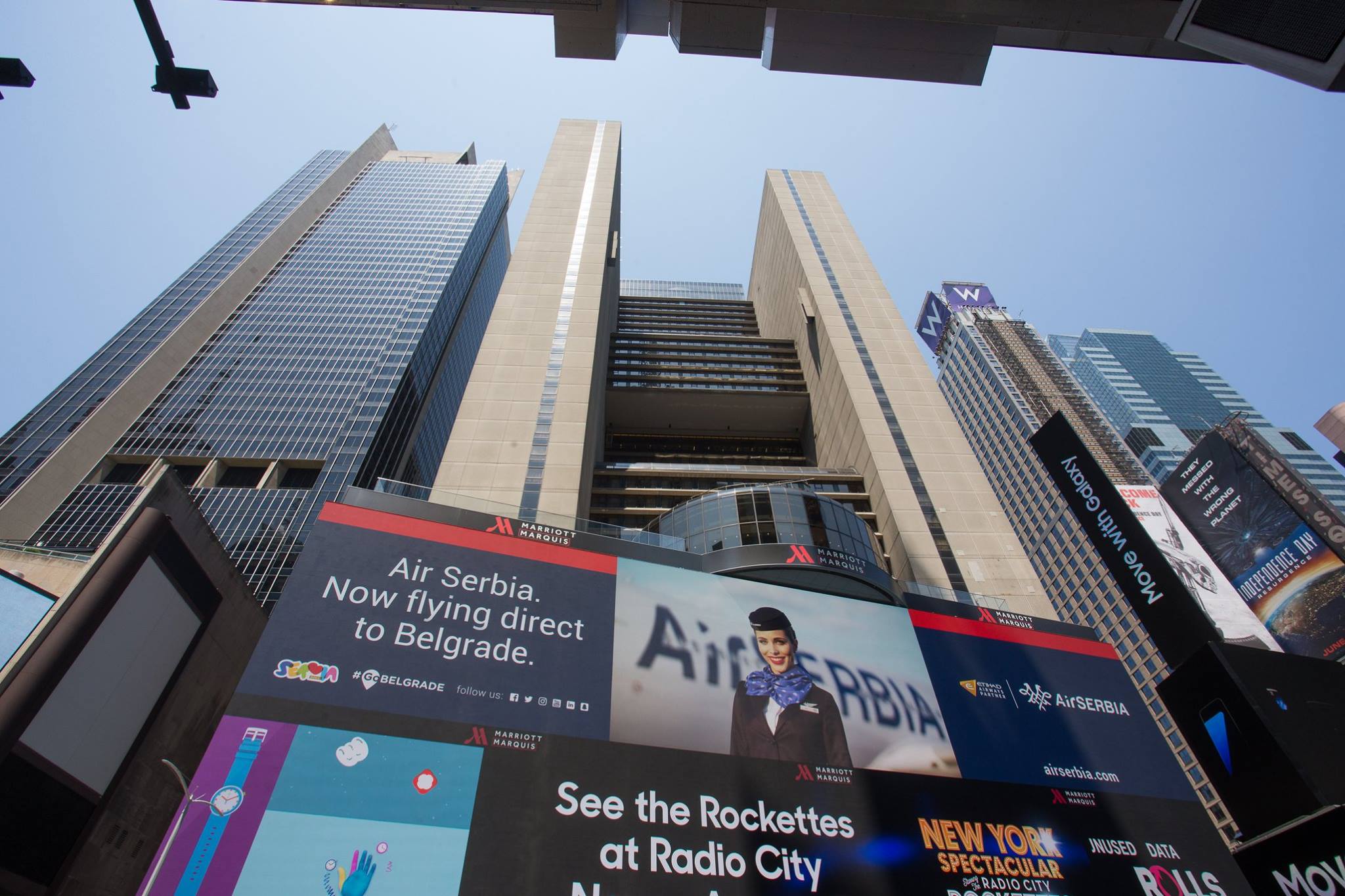Skift Take
Normally, a European airline flying five times a week to New York is no big deal. But this one is different.
As Etihad Airways seriously considered buying a stake in Serbia’s national airline about three years ago, the carrier was in rough shape.
Then called JAT Airways, it was controlled by the government, burdened by a small, older fleet incapable of flying longer routes and crippled by debts. But where others saw a bloated national airline, Etihad saw opportunity. It took a 49 percent stake.
As is Etihad’s usual approach, it drove a hard bargain. Despite not having a majority interest, it would need to actively manage the airline for five years. It would also fire many employees, and close the carrier’s home office. Abu Dhabi-based Etihad also refused to be responsible for JAT’s debts.
“When an airline is broken and it’s on the edge of vanishing forever, you have to be very hard nosed on how you intend to turn it around,” James Hogan, president and CEO of Etihad Aviation Group, said to Skift. “We weren’t part of the past. Why should we assume the debts going forward?
That airline now has a new name, an upgraded fleet and a fresh culture. It’s Air Serbia, and on June 23, it launched the first trans-Atlantic service from a Serbian airline since 1992, flying five times per week between Belgrade and New York.
In the short-term, Air Serbia will focus mainly on nonstop passengers. But over time, it expects it will carry more passengers from the United States to markets across the Balkans and Eastern Europe.
“The Balkans is a huge market and all the carriers in the Balkans are broken,” Hogan said.
Typical Etihad Strategy
This is business as usual for Etihad, which has made investing in troubled, smaller airlines a major part of its strategy. Elsewhere in Europe, Etihad owns pieces of Air Berlin and Alitalia, two carriers that have long struggled against larger competitors. Though Etihad has helped improve operations at both airlines, neither Air Berlin nor Alitalia is yet reliably profitable.
As with other carriers in its group, Etihad has called on Air Serbia management to change how it operates. Already, the airline has little in common with its predecessor.
“We are not bound by legacy thinking,” Hogan said. “In the past, it wasn’t a public utility, but it was treated like a government department.”
Relying on Etihad helped Air Serbia return to New York faster than normally would be possible. Air Serbia had no widebody jets, so it is leasing an A330 from Jet Airways, another airline in which Etihad owns a stake.
The pilots for the new international service were trained in Italy with Alitalia, while flight attendants were sent to Etihad’s headquarters in Abu Dhabi.
“Air Serbia in their own right wouldn’t be able to mount a long haul service,” Hogan said.
Air Serbia is also relying on Etihad as it renews its fleet, replacing older Boeing 737s with newer Airbus A319s and A320s. The smaller airline gets help from Etihad on many of its other contracts, too.
“One of the challenges of most airlines is that they duplicate the overhead,” Hogan said. “All of our contracts are cross-linked. “We work as one on cost and on purchases and sourcing. It makes us efficient.”
As it has with other airlines, including Alitalia, Etihad refreshed Air Serbia’s brand, making it much hipper. As part of its trans-Atlantic flight launch, Air Serbia even bought a video advertisement in New York’s Time Square, an unusually bold approach for an airline with only one-long haul aircraft.
Etihad also has tried to install a new service ethos at Air Serbia.
“With some of the airlines, when they struggle, the shareholders were unable to invest in product or brand or service training,” Hogan said. “It’s like any business. You need to train and develop.”
But the goal is not to make Air Serbia an Etihad clone, Hogan said.
“We want all the businesses to maintain their own personality,” he said.
Limits of Ownership Laws
Etihad owns pieces of six larger airlines, and when possible, it tries to share resources. What makes the strategy unique is that Etihad does not have a majority interest in any other airline.
In addition to Air Serbia, Etihad owns 49 percent of Alitalia, 40 percent of Air Seychelles, 29 percent of Air Berlin, 24 percent of India’s Jet Airways and about 24 percent of Virgin Australia. Virgin Australia is more autonomous than the others, but most of the airlines rely on Etihad for considerable support, sharing aircraft, and suppliers.
Ideally, Etihad might own more of its partner carriers. But worldwide, airlines have some of the strictest ownership rules of any industry. It is generally impossible for an airline to buy a controlling interest in a carrier in another country, so Etihad often goes as far as laws allow.
“It’s one of the few sectors in the world that isn’t truly global,” Hogan said. “It is very difficult but I think the model that we have shows that, with the right agreements, you can win. You won’t have to have ownership over 51 percent.”
As for future investments, Hogan said none are imminent. But he noted that India has recently changed its foreign ownership rules, which could permit Etihad to take a bigger stake in Jet Airways. “We are reviewing the change in aviation policy,” he said.
The Daily Newsletter
Our daily coverage of the global travel industry. Written by editors and analysts from across Skift’s brands.
Have a confidential tip for Skift? Get in touch
Tags: etihad
Photo credit: Air Serbia recently launched much-hyped service between New York and Belgrade. Air Serbia
